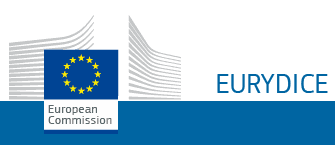The Concept of Distance Learning System
The United States Distance Learning Association), is giving the following definition about the distance learning system concept
"Obtain knowledge and skills through given information and instructions, by applying different technologies and other forms of distance learning"
Distance learning system – DLS represents the process of training, learning or online educational programme, mostly throught the Internet. It is based on the use of modern computer and communication technology. It also implies classes and exercises via the Internet, CD od DVD menu, consultatin with teachers through the Internet, email flow between participants, forums, Internet testing, video conferences....
The introduction of distance learning can be seen as the evolutionary development of the new educational form. Distance learning also represent the challenge and tool for improving and promoting educational process in our country and it is also one of fundaments for new and better knowledge governing forms. The intensive introduction of information technologies into the educational processes has become a priority of modern institutions of high education throughout the world.
The faculty of information technogies was the first faculty in Montenegro which has introduced DLS, a a new method of education in a responsible high quality form. During the preparation for the introduction of such educational form, the FIT also thought about reccomendations and experiences of leading world institutions and organizations which prescribe standards and systems for enabling the quality during DLS process.
Learning through the Internet
Learning through internet can be explained as a form of education in which the teaching material is presented to the participants via the Internet. In that process, the basic demand to the participants of the educational process is to possess a computer which is connected to the Internet. When we are talking about the programme support used during the education through the Internet, the mostly used tools are so called Courseware tools, which enable storing of the educational contents on the Web Server and their mutual connecting, the communication between participants of the educational process, governing the learning process and checking knowledge throught different self-evaluating tests.
WBT–WEB BASED TRAINING is used by publishing the learning content on WEB site of the educational institution. The benefits of this method of the distribution od the learning materials are: quick distribution-the students can access to the offered material through WWW, it is possible to incude hypermedia maerials, the service can be used by individuals or groups at the same time, the possibility of linking, multimedia contents, the simplicity of reproducing and publication of contents, the possibility of administrating the access, content interactivity etc.
E-mail is the simplest form of asynchronous interactivity and it mostly used as a appendix with the other forms of communication. The benefits of using the email: simplicity during the use, communication is private, enables a sufficient amoung of time for thinking and answering.
Mailing lists are the service with very similar form of interaction, advantages and disadvantages as email, adventages od post lists, it also enables usage simplicity, the adaptedness to the group work, enables the dividing of students and organizing into various smaller groups the students of which have more characteristics in common.
On-line forumi as well as the lists enable the public debates, questions and answers are being sent, it is possible to open a new discution group within the certain thematic area. This form of communication helps so that bit data banks do not take much space on our disks, it enables correspondence learning, by using file transfer, course material transfer and also helps create a bulletin board for the communication with the professor.
Internet relay chat (IRC) is the synchronous communication based on textual messages through the Internet or Intranet in real time, and it enables connection between students with mostly equal knowledge, equality of students, the objectivity of evaluation and the possibility to recoup the missed content.
FIT uses so called COMBINED TRANSFER which comprises the partial usage of Web, the mentioned internet services as well as the material on hard disks for file transfer. This king of approach enables a high quality e-leaning system which is giving the best from CBT and WBT, while at the same time all the disadvantages of any approach are minimalized.











